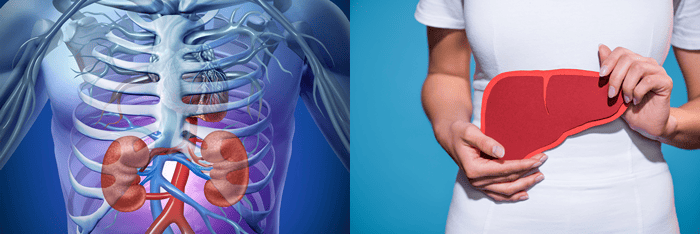When it comes to skin health, many people overlook the unique challenges faced by Black and Brown communities. Atopic Dermatitis (AD) and Prurigo nodularis (PN) are two chronic skin conditions that disproportionately affect African Americans, yet they often go undiagnosed or undertreated.
AD is commonly known as eczema, and PN is a rare chronic skin disorder resulting in itchy raised nodules on the skin. Raising awareness and ensuring access to appropriate care both play a key role in improving outcomes and quality of life.
Understanding Atopic Dermatitis
AD is a chronic inflammatory skin condition that features key symptoms of intense itching, dryness, and irritation. While it affects people of all races, African Americans are more likely to develop more severe and persistent cases. One reason is genetic variations in skin structure and immune response, making the skin more prone to inflammation and moisture loss.
In more melanated skin, atopic dermatitis may appear differently compared to white skin. Instead of the classic red, inflamed patches, impacted areas may look darker, ashy, or develop a rough, thickened texture due to scratching. Because of these differences, atopic dermatitis in people of color is frequently misdiagnosed or mistaken for other skin conditions, leading to delays in proper treatment.
If left untreated, AD can significantly impact daily life, causing sleep disturbances, emotional distress, and even increasing the risk of infections due to constant scratching. The burden is even greater for African Americans, who may face barriers such as limited access to dermatologists familiar with treating darker skin tones.
What is Prurigo Nodularis?
PN is a lesser-known but equally distressing skin condition that leads to itchy, hard nodules on the skin as well as significant inflammatory and nervous system involvement. Unlike AD, which is primarily driven by immune system dysfunction, PN results from an exaggerated nerve response which leads to the physical symptoms. This neurological component makes PN particularly difficult to manage, as traditional treatments may not fully address the underlying nerve dysfunction.
African Americans are three to four times more likely to develop PN than other racial groups. Like AD, PN in darker skin may be misdiagnosed due to differences in how it presents, and the chronic itch and discomfort can make daily activities unbearable, often leading to severe sleep disturbances, anxiety, and depression.
PN is also similar to AD in that many people suffer for years without understanding the cause of their symptoms, often resorting to home remedies or ineffective treatments.
Embrace Your Skin Health Journey
For many people, living with a chronic skin condition like AD or PN can feel isolating. If you’ve felt alone in your journey with AD or PN, know that support is available. Many others share your experience, and resources exist to help you find answers and relief.
The first step in managing these chronic skin conditions is getting the proper diagnosis. If you or someone you love experiences persistent itching, skin discoloration, or raised nodules, it’s important to see a dermatologist, preferably one with experience treating skin of color. Early intervention can prevent complications and help improve quality of life.
Other key steps you can take to kick off your journey to better skin health include utilizing recommended and available treatment options, keeping skin moisturized, and utilizing techniques that can help minimize itching and discomfort.
Raising Awareness and Expanding Resources
The lack of awareness surrounding AD and PN in the Black community contributes to ongoing disparities in diagnosis and treatment. By increasing visibility, spreading awareness, ensuring better access to care, and advocating for research that includes diverse populations, we can help bridge these gaps and empower others in our communities to take control of their skin health.
Click here to listen to a firsthand account of what it’s like to live with PN.
For more information and support and to learn more about treatment options, clinical trials, and other members of the AD/PN community visit:
National Eczema Association: https://nationaleczema.org
Understand AD: https://www.understandad.com
PN Exposed: https://www.pnexposed.com
References:



















 English (US) ·
English (US) ·